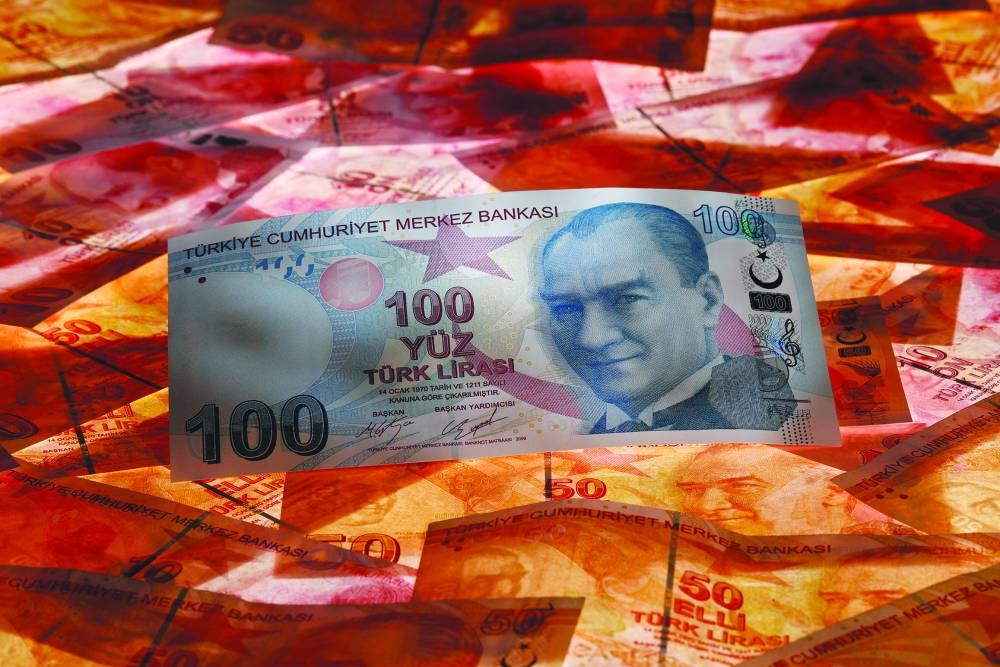Turkiye’s credit rating was upgraded by S&P Global Ratings for the second time this year due to reserve accumulation, disinflation and an improvement in the current account deficit.
The ratings firm late Friday raised Turkiye’s long-term sovereign rating by one notch, to BB-, while adjusting the outlook to stable from a previous “positive,” according to a statement.
Turkiye’s rating remains three levels below investment grade, and is on a par with South Africa, Jamaica and Jordan, among others.
The “stable” outlook reflects “balanced risks over the next 12 months to authorities’ ambitious plans to bring down still elevated inflation, manage workers’ wage expectations, and rebalance the Turkish economy,” S&P said.
The Turkish central bank’s tight monetary stance has enabled authorities to stabilise the lira, bring down inflation, rebuild reserves, and de-dollarise the financial system, S&P Global said. Friday’s move follows an upgrade in May, when the company highlighted improved coordination between monetary, fiscal, and income policies aimed at economic rebalancing.
Welcoming the move, Treasury & Finance Minister Mehmet Simsek said all three major rating companies have now raised Turkiye by two notches this year. Market indicators imply “a higher rating,” Simsek said in comments on X on Saturday.
Earlier this year, both Fitch Ratings and Moody’s citing confidence in the country’s return to orthodox economic policies in announcing upgrades.
S&P Global noted challenges ahead, however, including discussions scheduled for December on a minimum wage increase, a benchmark for wage-setting, for 2025.
An increase larger than 30% would “almost certainly prolong an already protracted disinflation process and make single-digit inflation in 2027 a less attainable goal,” wrote the analysts, including Frank Gill.
Turkiye since May has attracted foreign capital inflows, particularly through carry trades. These flows have enabled the central bank to rapidly build foreign exchange reserves, strengthening its ability to defend the Turkish lira if needed.
The current account deficit sharply narrowed thanks to a restrictive monetary policy that’s capped credit growth and held back domestic demand. Annual inflation remains high, though. Data due Monday is expected to show only a slight deceleration during October from 49.4% in September.
After President Recep Tayyip Erdogan’s reelection in 2023, Turkiye pivoted back to more conventional economic policies, abandoning a growth-at-all-costs strategy in favour of higher interest rates. The central bank has raised its key rate to 50% from single digits as recently as mid-2023 to cool demand and tame inflation.
“The upgrade reflects the rebalancing of Turkiye’s external accounts, visible in the narrowing of the 12-month rolling current account deficit to about 1% of GDP in August, a reduction in foreign currency deposits, and a concomitant increase in the CBRT’s stock of net foreign currency reserves,” S&P Global said.

A 100 Turkish lira banknote is seen on top of 50 lira banknotes in this picture illustration in Istanbul. The Turkish central bank’s tight monetary stance has enabled authorities to stabilise the lira, bring down inflation, rebuild reserves, and de-dollarise the financial system, S&P Global said.
